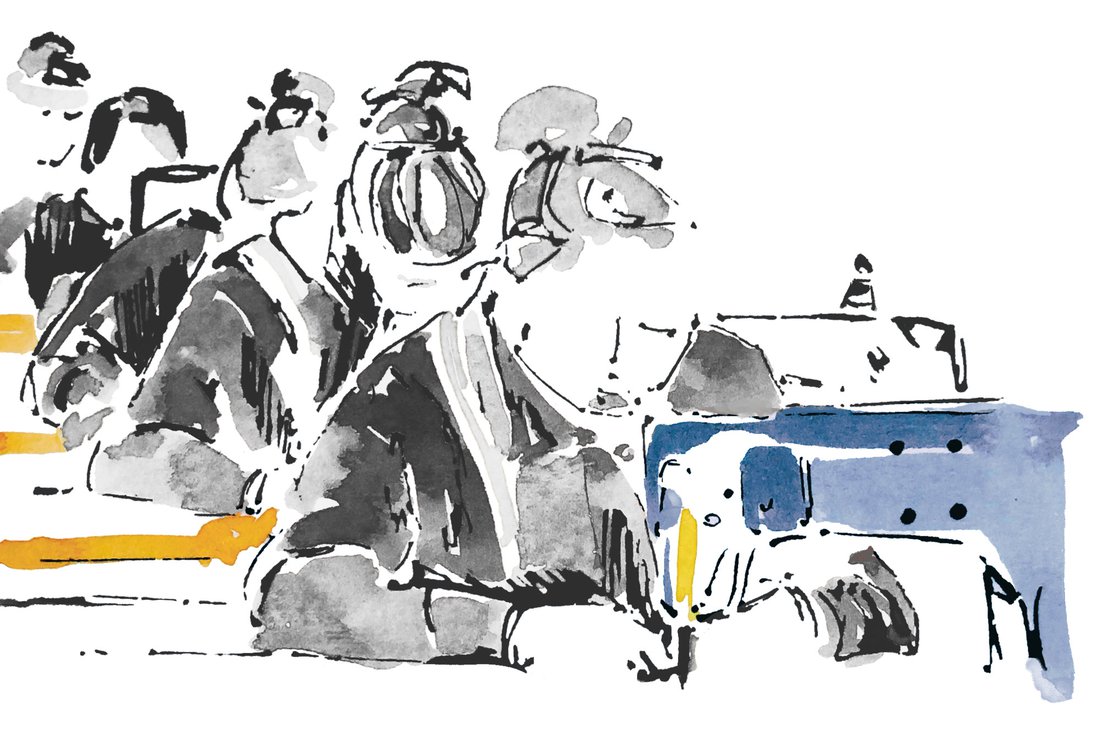

IMPORTANT INFORMATION
All data as at 31 December 2024, unless specified otherwise. This document is issued for information purposes only. It does not constitute the provision of financial, investment or other professional advice. We strongly recommend you seek independent professional advice prior to investing. The value of investments and the income derived from them may fall as well as rise. Investors may not get back the amount originally invested and may lose money. Any forward-looking statements are based on CCLA’s current opinions, expectations and projections. CCLA undertakes no obligations to update or revise these. Actual results could differ materially from those anticipated. All names, logos and brands shown in this document are the property of their respective owners and do not imply endorsement. These have been used for the purposes of this document only. CCLA Investment Management Limited (a company registered in England and Wales with company number 2183088), whose registered address is One Angel Lane, London EC4R 3AB, is authorised and regulated by the Financial Conduct Authority.
In the mid-1990s, Nike* became the poster child for a new type of globalised business model. In this model, the manufacture of apparel was increasingly outsourced to countries – mainly in Southeast Asia – where labour was plentiful and cheap.
Nike’s so-called ‘sweatshop scandal’ was reputationally damaging and prompted measures to improve the working conditions of employees in its factories. The company pioneered a new form of private regulation for supply chain labour standards, including a supplier code of conduct and social auditors to monitor compliance. This approach has since been adopted by almost all major companies sourcing products from high-risk countries.
In this context, we believe Nike can do more to strengthen labour rights in its supply chain, particularly given the recent passing of the European Union’s Corporate Sustainability Due Diligence Directive (arguably a 30-years-delayed response to the issues that first surfaced in the 1990s).
Nike’s problem is twofold. The first problem relates to non-payment of wages at two supplier factories following Covid-related closures. Workers at Hong Seng Knitting and Ramatex are owed an estimated $2.2 million combined in terminal compensation and legally owed partial wages. Nike has refused to engage with trade union groups and non-governmental organisations and is now being investigated by the US National Contact Point for Responsible Business Conduct.
Second, the company is not a member of the International Accord, which relates to building safety in the textile and garment industry. The initiative is widely regarded as one of the most effective interventions in supply chain labour standards, and failure to support it puts workers’ safety at risk.
Shareholder proposal
Shareholder proposal
During the summer of 2023, we held an investor webinar to highlight the plight of workers at Hong Seng Knitting and Ramatex and to raise investor awareness. We then drafted a public letter asking Nike to intervene and ensure remedy for the affected workers, gathering more than 60 investor signatories. Nike failed to provide a formal response.
In March 2024, CCLA co-filed a resolution calling on Nike to ‘publish a report evaluating how implementing worker-driven social responsibility (WSR) principles and supporting binding agreements would impact the Company’s ability to identify and remediate human rights issues in sourcing from high-risk countries’.
WSR initiatives are designed to protect the rights of workers and include binding agreements between workers and brands and independent monitoring. They also support effective reporting of harms through grievance mechanisms and worker participation in the design and provision of remedy. WSR initiatives are aligned with the United Nations Guiding Principles on Business and Human Rights and considered effective, even where workers are vulnerable to exploitation.
Our proposal rested on growing evidence that the prevailing approach of private regulation of global supply chains may no longer be fit for purpose, particularly at a time when the European Union is mandating human rights due diligence and remedy for people adversely affected by business practices.
Many of Nike’s peers have taken steps to improve conditions for workers and remediate rights violations by employing WSR approaches or binding agreements with labour organisations. Nike has failed to do the same.
Building the vote
Building the vote
During the summer of 2024, CCLA worked to build a supportive vote at Nike’s September annual general meeting (AGM). We:
- published two ‘exempt solicitations’1 with the US Securities and Exchange Commission
- spoke to proxy advisor firms Glass Lewis and ISS
- set up discussions with Nike’s top 10 investors
- held an investor webinar to explain the necessity of the resolution
- briefed media outlets.
Today, Nike has over 500 suppliers in 38 countries globally, and more than 1.1 million workers in its global supply chain. As investors, it is our duty to champion the rights of these workers and to ensure that the company upholds the highest labour standards. We aim to encourage a company that was once a leader in the field to return to this path and believe that, with time, Nike will be responsive.
*Not held in CCLA portfolio(s) as at 31 December 2024.
1An exempt solicitation is a mechanism that allows for the co-filers of a shareholder proposal to publicly lobby other investors to support a resolution without falling foul of acting in concert rules.







